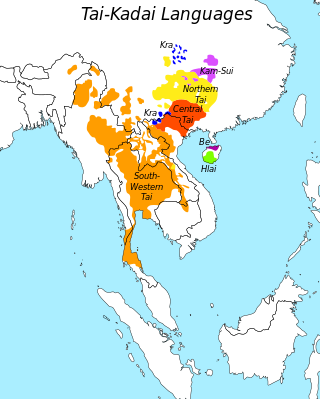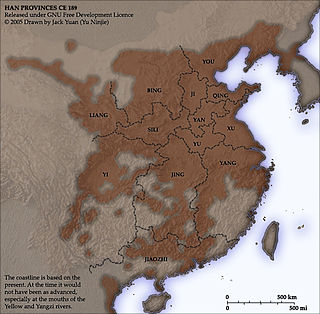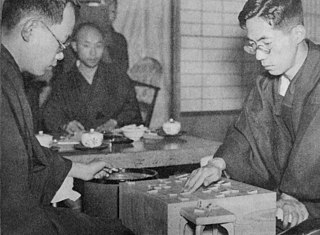Dai Jun may refer to:
Dai Jun may refer to:

The Kra–Dai languages are a language family in Mainland Southeast Asia, Southern China and Northeast India. All languages in the family are tonal languages, including Thai and Lao, the national languages of Thailand and Laos respectively. Around 93 million people speak Kra–Dai languages, 60% of whom speak Thai. Ethnologue lists 95 languages in the family, with 62 of these being in the Tai branch.
Tai or TAI may refer to:
Dai may refer to:

Do As Infinity is a Japanese pop and rock band that formed in 1999 with three members: vocalist Tomiko Van, guitarist Ryo Owatari, and guitarist and composer Dai Nagao. The band's name is sometimes abbreviated as DAI, alluding to the fact that Do As Infinity was named after Nagao. Signed to Avex Trax, the band released their debut single "Tangerine Dream" on September 29, 1999, followed by three more singles between 1999 and 2000, which appeared on their debut album Break of Dawn (2000). In December 2000, Nagao decided to devote all his time to composing the music and no longer appeared at live events. Five more studio albums were released between 2001 with New World and 2005 with Need Your Love.

The áo dài is a traditional Vietnamese national garment. Besides suits and dresses nowadays, men and women can also wear áo dài on formal occasions. It is a long, split tunic worn over silk trousers. Áo translates as shirt. Dài means "long". The term can be used to describe any clothing attire that consists of a long tunic, such as "nhật bình".
The Dai Kan-Wa Jiten is a Japanese dictionary of kanji compiled by Tetsuji Morohashi. Remarkable for its comprehensiveness and size, Morohashi's dictionary contains over 50,000 character entries and 530,000 compound words. Haruo Shirane (2003:15) said: "This is the definitive dictionary of the Chinese characters and one of the great dictionaries of the world."
Murong Jun, courtesy name Xuanying (宣英), formally Emperor Jingzhao of (Former) Yan ( 燕景昭帝), was an emperor of the Former Yan. He was the dynasty's second ruler, but after first using the Jin dynasty-created title of Prince of Yan, was the first to use imperial title, as during his reign the state expanded from possessing merely modern Liaoning and parts of Hebei to nearly all of the territory north of the Yellow River and some substantial holdings south of the Yellow River. In the Book of Jin, Murong Jun was described as about two metres tall and having an imposing look.
Lü Dai, courtesy name Dinggong, was a military general of the state of Eastern Wu during the Three Kingdoms period of China. Born in the late Eastern Han dynasty, Lü Dai started his career as a minor official in his home commandery in present-day Taizhou, Jiangsu before migrating south to the Jiangdong region, where he became an assistant magistrate and later a county chief under the warlord Sun Quan. He rose to prominence after his successes in suppressing some rebellions in Sun Quan's territories. Around the beginning of the Three Kingdoms period, Sun Quan, who later became the founding emperor of Eastern Wu, appointed Lü Dai as the governor of the restive Jiao Province in the south. During his ten-year-long tenure in Jiao Province, Lü Dai quelled a number of revolts, maintained peace in the area, and contacted some foreign kingdoms in Mainland Southeast Asia and made them pay tribute to Eastern Wu. In 231, he was recalled to Wuchang to oversee civil and military affairs in Jing Province alongside his colleague Lu Xun. Throughout the 230s, he suppressed a few rebellions in Wu territories. By 240, as he neared the age of 80, he was still in good physical health and competent enough to perform his duties. He rose to the position of Senior General-in-Chief in 246 and later Grand Marshal in 252 during the reign of Sun Quan's successor Sun Liang. He died at the old age of 95 and was one of the longest-living notable persons of the Three Kingdoms period.

The Prince Who Turns into a Frog is a 2005 Taiwanese drama starring Ming Dao, Joe Chen, Sam Wang and Joyce Chao. It was produced by Sanlih E-Television and directed by Chen Ming Zhang and Liu Jun Jie (劉俊傑).

You Prefecture or YouProvince, also known by its Chinese name Youzhou, was a prefecture (zhou) in northern China during its imperial era.

Dai is the pinyin romanization of the Chinese surname written with the Chinese character 戴. It is romanized as Tai in Wade-Giles and in Hong Kong Government Cantonese Romanisation. Dai is the 96th most common surname in China, according to a report on the household registrations released by the Chinese Ministry of Public Security on April 24, 2007.

Frizzled-1(Fz-1) is a protein that in humans is encoded by the FZD1 gene.
Dai language may refer to:

Meijin (名人) is one of the eight titles in Japanese professional shogi, and is the most prestigious title, along with Ryūō. The word meijin refers to a highly skilled master of a certain field.

Three Kingdoms is a 2010 Chinese television series based on the events in the late Eastern Han dynasty and the Three Kingdoms period. The plot is adapted from the 14th century historical novel Romance of the Three Kingdoms and other stories about the Three Kingdoms period. Directed by Gao Xixi, the series had a budget of over 160 million RMB and took five years of pre-production work. Shooting of the series commenced in October 2008, and it was released in China in May 2010.
Dai Jun is a Chinese swimmer. He competed for China at the 2012 Summer Olympics.
Qidi is a Southern Loloish language of Yunnan, China. Qidi is spoken in Jiangcheng Hani and Yi Autonomous County, Mojiang Hani Autonomous County, and Lüchun County.
Masahiko Urano is a Japanese professional shogi player ranked 8-dan.

Dai is a stablecoin on the Ethereum blockchain whose value is kept as close to one United States dollar (USD) as possible through a system of smart contracts and the decentralized participants those contracts incentivize to perform maintenance and governance functions. Dai is maintained and regulated by MakerDAO, a decentralized autonomous organization (DAO) composed of the owners of its governance token, MKR, who may propose and vote on changes to certain parameters in its smart contracts in order to ensure the stability of Dai.